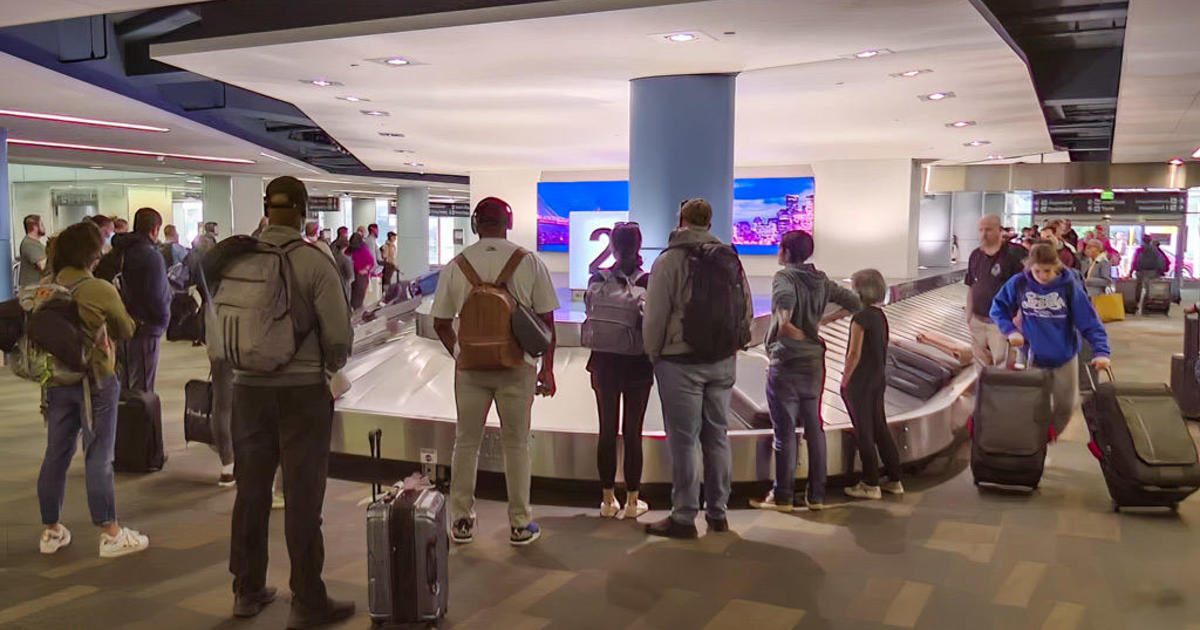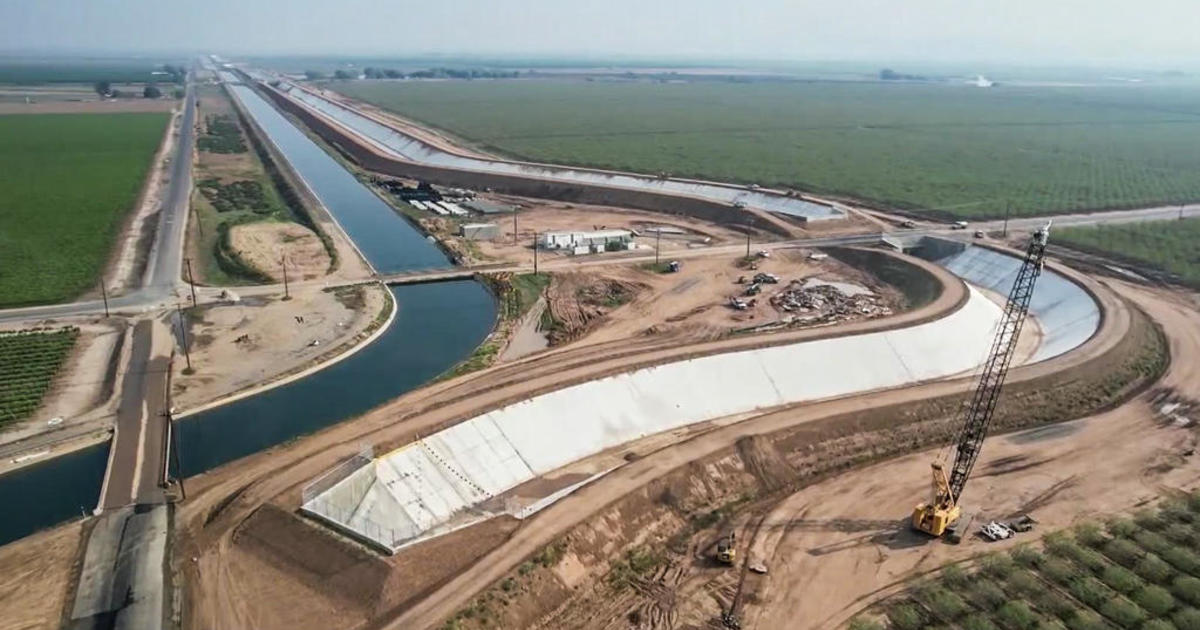UCSF Doctor Says COVID-19 California Miracle Is Over Now, We Are Just Like Other States
SAN FRANCISCO (KPIX) - A couple of months ago Dr. Bob Wachter, Professor and Chair of the Department of Medicine at the University of California at San Francisco, was touting the "California Miracle," documenting the state's success at flattening the curve.
Now, as COVID-19 cases increase dramatically, Dr. Wachter told KPIX 5's Joe Vazquez, "the miracle is over now. We're just like a lot of other states. We dodged the first bullet, but we're catching this one."
Following, is the transcript of Dr. Wachter's full interview:
DR. WACHTER: I think we got a little complacent. We were opening things up. That wasn't inappropriate. It's part of the deal, is try to lock things down to give yourself a chance to get smarter about the virus. Building capacity and build testing and build contact tracing and get PPE. We did all that. So it was perfectly reasonable to begin loosening up a little bit and seeing how things go. And they haven't gone well. They've gone worse than I would have expected. And they've gone worse faster than I would have expected. And so it's time to say, 'we tried that, it's not working, we have to pull back.' And next time we try it, we're going to have to do it a bit more slowly, a little more carefully. We have to make sure people are on board. It's one thing for the governor to say, 'do this' or 'do that.' It's another to make sure everybody's out there wearing masks and keeping their distance. I think people got a little bit sloppy.
JOE: As for the 'California Miracle?'
DR. WACHTER: It is dead. I hope it comes back. I mean, we really did have a miracle when you look at the size of the state of California and where we were on March 1. There was absolutely no reason to believe that we would be spared and every reason to believe that we would have an experience just like New York had. So there was really no good reason to believe we weren't going to get crushed. Thirty-thousand people had died in New York State and a couple of thousand in California. Twenty-thousand had died in New York City and 50 in San Francisco. It's staggering. So we did really, really well. But the miracle is over now. We're just like a lot of other states. We dodged the first bullet, but we're catching this one.
JOE: You hate to hear that. But of course, California is a big state. The bulk of this [increase] is in Southern California and the Central Valley. But still, they're our neighbors.
DR. WACHTER: The narrative a couple of weeks ago was 'that's a southern California problem and we're good in the North.' It's just not really true anymore. It's worse in the South but there are plenty of counties in Northern California that have measures that tell us that things are going off the rails here, too. Not quite as badly as Imperial County or Kings or even Los Angeles. But Marin is having a spike, and Santa Clara is having something of a spike and Contra Costa County is having something of a spike. And San Francisco is worse than we were a few weeks ago. It's not terrible, but the number of cases have gone up a lot. The number of patients in the hospitals has gone up considerably. So it's patchy, but it's pretty broadly distributed throughout the state.
JOE: So what can we learn from this? It seems to be that the prevailing wisdom was that if we open slowly and monitor, we could continue to open slowly. Is that still going to be the case, or could we see rollbacks continue?
DR. WACHTER: The next couple of weeks will tell us the direction we can go. And I think there's a constant push from the people and from the businesses and from the governor to try to open up. But the message from the very beginning from a lot of the public health experts was this is not 'public health versus the economy.' If we don't get the public health part right, you can't do the economy. We have to think not just about what are the policies and rules, but what is the normal behavior of individuals? Because this really is more about what every single one of the 40 million of us does every day. And they're not going to anytime soon be going out and arresting people who won't wear masks. It's going to be much more about if you don't wear a mask, how is that going to feel? Are people going to come up to you and say, 'why aren't you wearing a mask?' And that hasn't happened yet, but that needs to happen.
JOE: Is it still possible, if I'm reading you right … that we could still reopen cautiously if people wear masks? If everyone wears masks? If most of us do? If I'm hearing you right, it's just that not a high enough percentage are choosing to wear a mask.
DR. WACHTER: I think the masks are the most important thing we could do. If people reliably could wear masks in all of the activities where they are coming into contact with other people, we would markedly reduce the transmission rate and we would stay on top of this. The virus doesn't care that we had a really good March, April or May. It's just sitting there waiting to pounce. And if we let our guard down, this will be what happens. And so, this experiment has failed. The experiment of opening up at the pace that we did and the way that we did. The new experiment will be, 'okay, let's go back 10 yards and let's try it again a little bit more slowly but with people being a little bit more careful in all of their daily personal behaviors. And that is not impossible that that will be a positive experiment. It's perfectly reasonable to believe that if we get it right, and everybody does the right thing, that we will be able to move forward and open up more and more. But I think we had this illusion that because we had 3 good months we were out of the woods. We're not out of the woods until we have a vaccine that works and is in the majority of our shoulders. And at best, that's a year from now.



